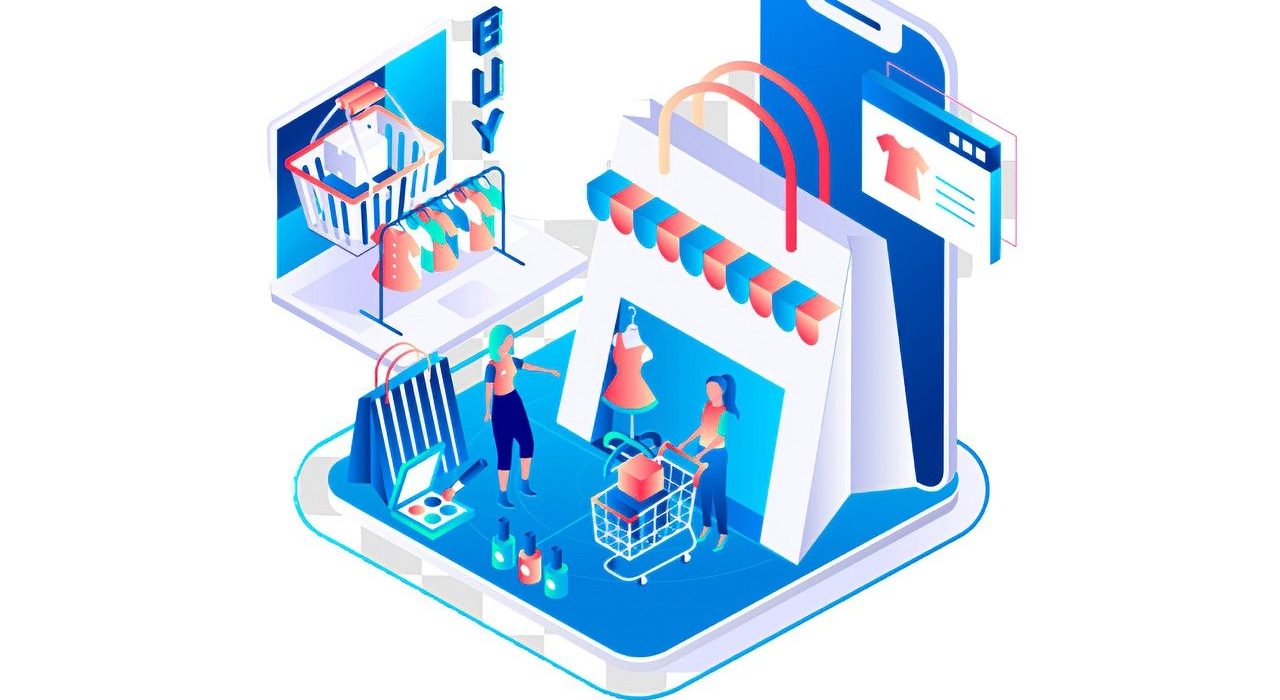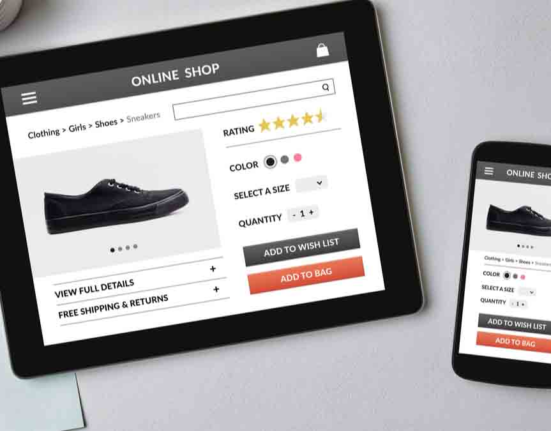As of 2021, there are 2.14 billion digital consumers worldwide. That amounts to 27.6% of the 7.74 billion people on the planet. A market is a place where buyers and sellers come together to facilitate the exchange of goods and services. Given the growing number of online buyers, any business would want to establish its name in this online world.
If you have a startup then e-commerce platforms can provide a boost to your physical business. The main advantages of e-commerce are it is cheap, provides global reach, and is available 24*7. The aim of this article is to give you in-depth insights into which e-commerce platform is the best.
These are the top 5 e-commerce platforms for start-ups:
1) Shopify
Shopify is a platform for online shopping that enables anyone to start an online store and sell their goods. With Shopify POS, retailers can also conduct in-person sales of their goods.
Shopify is today’s top e-commerce platform for companies of all sizes. This platform helps you to sell Physical products, Digital products, Services and consultations, Membership, Ticketed experiences, Lessons and classes, Rentals, etc.
Features
- Storefront (70+ professional themes, Editable HTML and CSS, Your own domain name, etc)
- Shopping cart (100 payment gateways, free shipping, Automatic taxes, etc)
- Marketing and SEO (social media integration, gift cards, discounts, etc)
- 24*7 support (Through Shopify help center or discussion forums)
- Analytics (Actionable dashboard, Traffic reports, Google analytics, etc)
- Products (Inventory management, Import/Export, Product organization)
Pros
- Mobile friendly
- Easy to install and use
- Reliable and safe
- No technical experience is required
- Wide range of customizable theme templates
Cons
- Pricing- Subscription and transaction fees
- Only basic marketing tools are available
- Shifting to another platform is very difficult
2) Yo!Rent
Yo!Rent is a globally recognized rental eCommerce platform to launch online businesses with rental and sales functionalities. The platform comes with dedicated modules including order management, inventory management, late returns, document verification, agreement management, and many more.
The business owner and sellers can add/remove the option of selling/renting any time they wish. The online businesses launched using Yo!Rent are feature rich and fully customizable as per business requirements.
Yo!Rent is a completely white label and self hosted rental software available at a one-time cost with free technical support for one year.
Key Features:-
- Multi-currency Conversion
- Multilingual Platform
- RFQ Management
- GDPR Compliant
- Advanced Search Functionality
Pros:
- Industry-specific designs
- Works for Single Vendor and Multi vendor marketplaces
- Robust, secure, and scalable
- Dedicated admin & seller dashboard and interactive customer interface
- Free live demo
Cons
- Limited themes
- No page builder
3) PrestaShop
PrestaShop is an incredibly feature-rich, open-source, free e-commerce platform that you can use to manage stores on your own servers or in the cloud. 250,000 stores presently use it, and it is offered in a total of 65 languages.
While opening an online store on PrestaShop may require some effort, it offers outstanding capabilities and functionalities.
Features
- Helps to quickly create products (create categories and sub-categories of products, keeps a record of inventory)
- Provides 50 top-notch payment solution
- Easy customization
- Helps to comply with legal requirements (including taxes)
- Provides marketing assistance (special offers, reinsure customers, increase traffic, etc)
- Gain Insights (about marketing performance, product, sales & customers, etc)
Pros
- User-friendly interface
- Customizable
- Reliable and secure payment
Cons
- Not ideal for large companies
- No dedicated support service team
- A lot of PrestaShop modules have to be purchased additionally
4) Magento
Magento is an open-source e-commerce platform that gives online retailers control over their online store’s appearance, content, and operation in addition to a versatile shopping cart system. Magento provides robust capabilities for catalog management, SEO (search engine optimization), and marketing.
On the platform, over 100,000 online stores have been established. More than 2.5 million people have downloaded the platform code, and in 2019, $155 billion worth of items were sold using Magento-based systems. Magento has a 2.32 percent market share among all e-commerce platforms worldwide as of April 2021.
Features
- Better security (Asynchronous and bulk web API, Rewards & loyalty, google tag manager)
- Analytics (dashboard- customer behavior and overview of the website performance)
- Multiple payment alternatives
- Global Operation (Tax rate support, Multilingual, Localization, Support for multiple currencies)
- SEO management
Pros
- Offers 1400+ plugins and extensions
- Can manage high traffic easily
- Simple administrative interface
- Easy maintenance
Cons
- Extensive documentation
- High cost of development
- Requires a dedicated hosting server for better speed
5) Yo!Kart
Yo!Kart is a leading multi-vendor eCommerce software for startups. Its compelling features include all the tools required to accept orders, track inventory, process payments, manage shipping, market your brand, and analyze your data to build a feature-rich eCommerce platform.
Yo!Kart comes pre-integrated with all the relevant sales, marketing, and finance APIs essential to building one of the best eCommerce platforms empowering business owners to scale their operations as their sales multiply. Yo!Kart also has a B2B ecommerce solution to launch B2B online marketplaces.
Features:
- Robust eCommerce Features
- Product Management
- Marketing Features
- Conversion-Focused Features
- Multiple Payment Options
- Reporting & Analytics
- Security Features
- Shipping & Fulfillment Features
- Mobile App Features
Pros:
- Fully customizable
- Engaging UI/UX Experience
- Advanced tech stack
- Multiple revenue streams
- Pre-integrated Business APIs
- PWA Compliant
- Android & iOS Apps
- Multilingual & multicurrency
Cons:
- No themes are available in the GoQuick package.
- Time-consuming for novice users.
6) BigCommerce
BigCommerce collaborates with a wide variety of profitable eCommerce businesses and well-known brands, serving over 120 countries and generating $17 billion in retail sales. It is a one-stop e-commerce solution for online sales of both tangible and intangible commodities.
BigCommerce provides – web hosting, a database for your products, tools for building your storefront, inventory management, marketing tools, tools for calculating shipping and taxes, and much more. It is also a SaaS (software as a service) platform. This implies that you don’t need to download any software in order to utilize BigCommerce. Everything is done using the BigCommerce App on your mobile device or the browser on your computer.
Features:
- Provides discount on bulk orders
- Customer segmentation
- Abandoned cart feature
- Helps to convert more sales (With no coding needed, use our Page Builder tool to launch your store more quickly and make simple modifications to your website)
- Easy e-commerce management (using inventory management tools, personalized shopping experiences, leading shipping and payment providers, etc)
Pros
- Omni channel selling
- Scalability for the worldwide transition to online shopping
- Speed and agility to increase sales and safeguard them
- Essential integrations for the back office
- No proprietary barriers, stumbling blocks, or restrictions
Cons
- Sales threshold model (As your revenue will increase you will be automatically upgraded to the package which will offer additional benefits but will also increase the cost, so being of this cost is important)
- Only 7 free themes
- Absence of e-mail marketing tools
- Absence of multilingual options
7) KonaKart
KonaKart offers a wide range of tools to help merchants successfully market their goods online. It is a Java / JSP / Javascript / XML-based solution with simple Java APIs that enables retailers to incorporate eCommerce capabilities into current systems fast. The elements of KonaKart that can be customized are open source and available under the GNU LGPL.
Both a Storefront application and an AJAX-capable Administration application are included with KonaKart. Role-based security is a feature of the Administration Application that enables businesses to choose which administrative tasks should be made available to specific user groups.
Features
- Multi-store functionality
- Global reach (multilingual and multi-currency)
- Provides content management support
- It provides merchandising features (up-selling, cross-selling, accessories, etc)
- Various payment gateways (like recurring billing and refunds)
Pros
- Provides backward compatibility (this ability to upgrade easily keeps the cost low)
- Java technology provides versatility, efficiency, and platform portability.
- Provides good database support (like MySQL, PostgreSQL, Oracle, DB2, and MS SQL Server)
Cons
- It requires technical knowledge
- Your company needs to have Java competency to fully utilize this platform
- Expensive as a technical team is required
Conclusion
In sum and substance, there is no one platform that is the most ideal but through this list, we have tried to bring the best solutions for your e-commerce startup business.
Every business has different expectations from e-commerce platforms, it can be more payment options, drop shipping capabilities, real-time inventory management, or a user-friendly interface. Based on your requirements you can pick the best platforms from this list.
Author Bio
Sakshi Baid works as a Product Associate at Refrens.com – Online Invoice Generator & India’s most powerful platform for freelancer’s growth. She has worked for some renowned companies as a Brand and Digital marketing associate.






